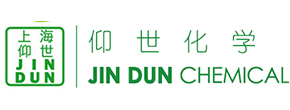TPU: Dual Efforts Needed in Raw Materials and Finished Products
2023/5/26
"In general, China's polyurethane industry has transitioned from a period of high-speed growth to stable development. The future market will gradually shift from price and production capacity competition to service competition, while also moving towards globalization and industrial chain development. This requires accelerated independent innovation in key technologies, key additives, key equipment, and key products such as TPU to better meet downstream demand and enhance the overall competitiveness of the industry," said Han Baole, Deputy Secretary-General of the Polyurethane Association.
Liu Jing, Senior Engineer of the Elastic Committee of the Polyurethane Association, pointed out that in recent years, China's TPU industry has experienced rapid development, with the emergence of large-scale production companies such as Wanhua Chemical, Merichem, Yinuowei, and Huafeng, as well as a large number of small and medium-sized enterprises. However, compared to international advanced levels, the Chinese TPU industry still has certain gaps in product quality, production processes, and equipment advancement. The shortcomings include a low level of continuous synthesis equipment, a significant proportion of batch production in workshop-style settings, a lack of software technology, relatively backward process technology, insufficient product stability, and a limited ability for technological innovation.
In recent years, TPU production capacity has increased significantly, while the growth rate in downstream markets has slowed down. According to Ma Yue, a market analyst at Chem365.net, from 2018 to 2022, China's TPU production capacity had a compound annual growth rate of 13%, with total demand exceeding 8% annually. In 2022, the total TPU production capacity reached 1.3 million tons, with a total output of 660,000 tons. In the same year, the overall Chinese TPU market showed a sluggish trend with a slow decline in prices. While the demand for TPU in the wire and cable industry continued to grow, the demand in major downstream sectors such as footwear and pipes showed varying degrees of weakening.
Ma Yue also noted that Chinese TPU products are primarily concentrated in the middle to low-end markets, with dispersed customers and intense competition. In the high-end product sector, only a few foreign advanced manufacturers and domestic companies are involved. "Currently, the prospects for TPU pipes mainly lie in the substitution of existing materials. TPU film products are gradually replacing polyethylene, polypropylene, and polyvinyl chloride films. However, the domestic production rate of TPU materials for fire hoses is relatively low, and the localization rate of TPU-based 'invisible car wraps' needs to be improved," said Ma Yue.
Zhou Jian, Chairman of Suzhou Xiangyuan New Materials Co., Ltd., believes that China should focus on the development of high-performance thermoplastic polyurethane elastomers (GTPU), strengthen research on raw materials, additives, and downstream applications. This includes researching and developing new non-toxic, pollution-free, high-performance, low-cost, and multi-functional TPU chain extenders to meet the demands of high-performance, differentiated, and specialized industrial applications such as resource exploration, military, medical, electronics, high-end sports equipment
, and other high-value-added sectors.
Currently, domestically developed GTPU materials in China have features such as high tensile strength, abrasion resistance, low permanent deformation under compression, and good high-temperature dimensional stability. They can be used in hydraulic seals, hoses, timing belts, cables, defense, and other fields, as well as in chemical mechanical polishing pads, offering significant market potential.
Ma Yue predicts that with the increase in new TPU demands, China's TPU demand is expected to maintain a compound annual growth rate of 9% in the next five years, while investment in production capacity will continue at a fast pace with a compound annual growth rate of 8%. By 2027, TPU production capacity is projected to reach 1.94 million tons, with a total output of 1.07 million tons. The development and application of high-end TPU products will be a key focus in the industry's future development. The rapid rise of the new energy vehicle industry is driving the demand for supporting charging stations, which will boost the TPU demand. Furthermore, new demands are arising in the field of geophysical cables for offshore oil and gas and wind power. Additionally, under the "dual carbon" strategic goal, TPU materials are also transitioning towards a bio-based direction.
JIN DUN CHEMICAL has built a special (meth) acrylic monomer manufacturing base in ZHEJIANG province. This makes sure the stable supply of HEMA, HPMA, HEA, HPA, GMA with high level quality. Our special acrylate monomers are widely used for thermosetting acrylic resins, crosslinkable emulsion polymers, acrylate anaerobic adhesive, two-component acrylate adhesive, solvent acrylate adhesive, emulsion acrylate adhesive, paper finishing agent and painting acrylic resins in adhesive.We have also developed the new and special (meth) acrylic monomers and derivatives. Such as the fluorinated acrylate monomers, It can be widely used in coating leveling agent, paints, inks, photosensitive resins, optical materials, fiber treatment, modifier for plastic or rubber field. We are aiming to be the top supplier in the field of special acrylate monomers, to share our rich experience with better quality products and professional service.

